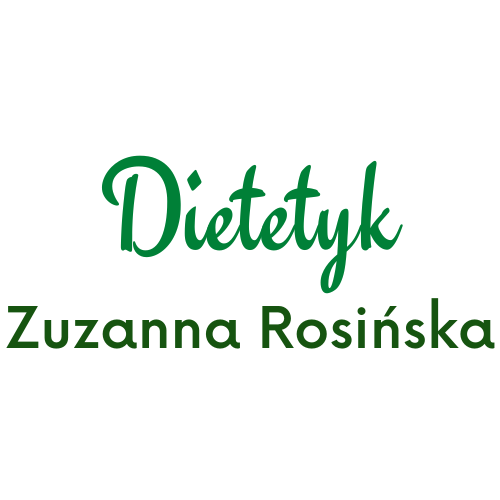WHY is an iron-rich diet so important? Bez kategorii
Why is an iron-rich diet so important? What role does iron play in the body and where to find it in the diet? I will answer all these questions later in the article.
What is iron and what functions does it have in the body?
Iron is a chemical element with the symbol Fe and has the atomic number 26. It is one of the most important elements in the human diet, as it performs many key functions in the body.
One of the most important roles that iron plays in the body is the transport of oxygen. Iron is a component of hemoglobin, a protein present in red blood cells that carries oxygen from the lungs to tissues and organs. In addition, iron is also a component of myoglobin, a protein present in muscles that stores oxygen for use during exercise.
Iron is also necessary for the proper functioning of the immune system. It helps in the production of immune proteins that fight diseases and infections. In addition, iron is also important for the functioning of the nervous system as it helps in the production of neurotransmitters that transmit signals between nerve cells.
What products can we find iron in?
In the human diet, iron occurs in two forms: heme and non-heme. Hemic iron comes from animal products such as meat, fish and poultry. Non-heme iron is found in plant products such as spinach, beans and nuts.
Iron is present in a variety of foods, but not all are equally rich in this nutrient. Moreover, some products are better absorbed than others, which means that their content in the diet may not be enough to cover the body’s needs.
Here is a list of foods rich in iron:
- Meat: It is one of the best sources of iron, especially red meats such as beef and veal. Poultry meat, like chicken and turkey, is also a good source of iron. However, it is important to remember that some forms of meat, such as cold cuts and sausages, can be rich in fat and salt, which adversely affects your health.
- Fish and seafood: Some fish species, such as tuna, sardines and halibut, are rich in iron. These products are also rich in omega-3 fatty acids, which have a beneficial effect on the heart and nervous system. Seafood such as mussels, shrimps and lobsters are also a good source of iron.
- Eggs: Eggs are a good source of many nutrients, including iron. Egg proteins are also wholesome, meaning they contain all the necessary amino acids needed to build protein in the body.
- Legumes: Beans, lentils and chickpeas are sources of plant protein and iron. However, it should be remembered that plant forms of iron are not as easily absorbed as those from meat and fish.
- Cereals: Some cereals are fortified with iron, such as breakfast cereals and wholemeal bread. These products are also rich in fiber and other nutrients.
- Vegetables: Spinach, broccoli, Brussels sprouts, kale and other dark green leafy vegetables are rich in iron and other nutrients. However, it should be remembered that plant forms of iron are not as easily absorbed as those from meat and fish.
- Fruits: Fruits such as apricots, grapes, apples, kiwi and strawberries contain iron, but in smaller amounts than meat, fish and dairy products.
What are the risks of iron deficiency?
Not enough iron in your diet can lead to anaemia, which is a decrease in the number of red blood cells and/or haemoglobin in your blood. Symptoms of anaemia may include tiredness, weakness, dizziness and shortness of breath.
Therefore, it is important to take care of the proper intake of iron in the diet. People on a vegetarian or vegan diet should pay particular attention to the amount of iron they eat, as plant products contain less heme iron than animal products. At the same time, excessive iron intake should be avoided as this can lead to serious health problems.
The conclusion is that iron performs key functions in the body and is essential for our health. Therefore, it is worth taking care of the proper intake of this element in the daily diet.
So why is a DIET rich in IRON so important?
A diet rich in iron is extremely important for health because iron plays a key role in the body. The first and most important function of iron is to transport oxygen from the lungs to other tissues and organs, which allows them to function properly. In addition, iron is involved in the production of hemoglobin – a protein that transports oxygen in the blood.
Lack of enough iron in the blood leads to anaemia, which manifests as fatigue, weakness, pallor of the skin and palpitations. Anemia can also lead to a dysfunction of the immune system and an increased risk of infection, and in more severe cases it can be dangerous to health.
Therefore, it is important to provide enough iron in the diet, especially for women of childbearing age, whose needs are higher due to menstrual periods. However, it should be remembered that not all iron is equally absorbed by the body. Heme iron, which is found in animal products such as meat, fish and poultry, is well absorbed, while non-metallic iron, which is found in plant products such as spinach, beans and soybeans, is less absorbable. However, you can increase the absorption of plant iron by consuming it with foods rich in vitamin C, such as peppers, citrus or strawberries.
It is also important not to exceed the recommended daily iron intake, as excess iron can lead to abnormalities in the functioning of the body, especially the cardiovascular system. Therefore, before taking iron supplements, it is worth consulting a doctor or dietitian.
